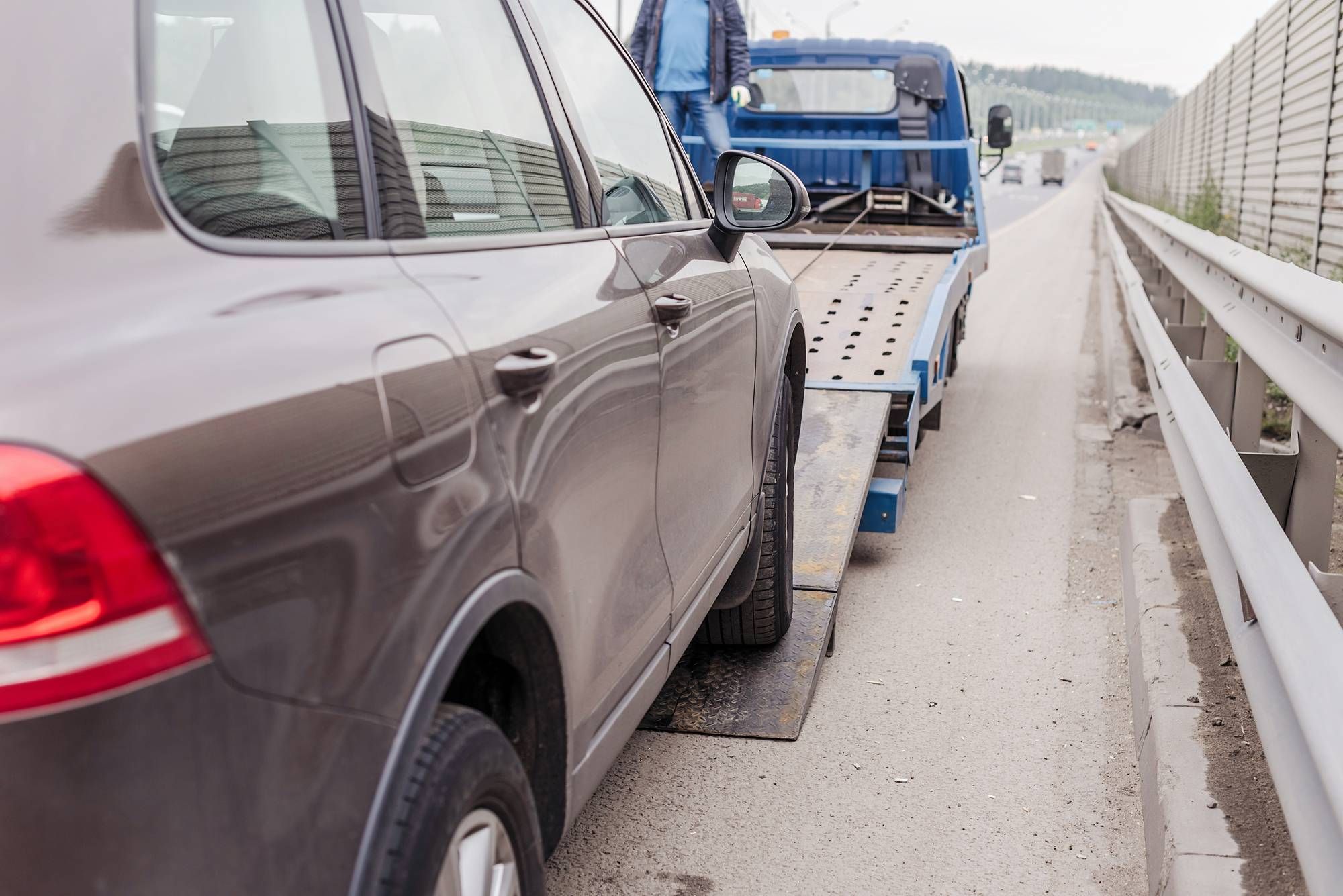Top Class Actions’s website and social media posts use affiliate links. If you make a purchase using such links, we may receive a commission, but it will not result in any additional charges to you. Please review our Affiliate Link Disclosure for more information.
If you have been sold a defective or trouble-prone vehicle in the Empire State, you may have recourse under the New York lemon car law.
If your new or certified pre-owned vehicle winds up having numerous problems within the first 18,000 miles that cannot be repaired after a reasonable number of attempts, you may be entitled to a full refund of your purchase price. This lemon law also covers motor homes and trucks as well as motorcycles, watercraft, powered wheelchairs and “demo” models.
How Does the Law Define a “New” Vehicle?
In order to qualify for coverage as a new vehicle under the lemon law, it must meet four requirements:
- it was covered by a manufacturer’s warranty at the time it is delivered
- it was purchased, leased or transferred (as a gift) within 18,000 miles or two years of original delivery, whichever is earlier
- it was either purchased, leased or transferred or is currently registered in New York
- it is used mainly for personal reasons
Lemon laws around the country are fairly new. The first law of its kind was implemented in Connecticut in 1982, after which point, other states followed suit. The Connecticut law only covered new cars, allowing consumers recourse if they purchased a new car afflicted with serious issues. In 1984, New York became the first state to implement a lemon law applying to used cars.
How Are Used Vehicles Covered Under the New York Lemon Law?
For coverage of used cars under the state’s lemon law, a certified pre-owned vehicle must meet five conditions:
- it was purchased, leased or transferred (as a gift) after 18,000 or two years of original delivery, whichever is earlier
- it was purchased or leased from a dealership in the state of New York
- the purchase price was no less than $1500
- it had no more than 100,000 miles on it at the time it was acquired
- it is used mainly for personal reasons
 I Returned a Leased Vehicle and the Dealer Claims There Is “Excess Wear and Damage”. What Are My Rights and Responsibilities?
I Returned a Leased Vehicle and the Dealer Claims There Is “Excess Wear and Damage”. What Are My Rights and Responsibilities?
Generally, “excess wear and tear” under New York lemon law is defined as anything beyond what is considered “normal.” Because this is vague and open to interpretation, auto leasing companies are legally required to specify what constitutes normal wear and tear in the lease agreement — so it is recommended that one read the contract carefully.
This said, excess wear can include any of the following:
- damaged or tinted glass
- physical damage to the body, paint, lights, etc.
- missing equipment that was included with the vehicle (including the spare tire, jack and any tools)
- wheels and/or tires in poor and unsafe condition
- interior damage
- mechanical damage that would result in unsafe and/or illegal operation
If the vehicle is returned at the end of the lease and there is excess wear and damage, the one who leased the vehicle can obtain an itemized estimate for repairs from a state-licensed appraiser. If it returned prior to the end of the lease, the leasing company must notify the lessor of their rights and responsibilities within 40 days of the return and may charge only the actual cost of repairs and replacement.
Further information is available through the Attorney General’s website.
How Do I Get Redress Under the New York Lemon Law?
The New York Attorney General’s Office website has links to Request for Arbitration forms that can be downloaded, filled out and submitted either via post or email. You can also work with an attorney to help file a lemon law claim.
An attorney can help you gather the documentation you need to show that you have complied with the law’s requirements to seek repairs and compensation. If you have not taken the proper steps before you can file a claim under the lemon law, a lawyer may be able to help you first take these steps and gain compensation from the manufacturer or dealer.
Arbitration Under New York Lemon Law
The New York State Dispute Resolution Association (NYSDRA) offers arbitration procedures for those dealing with lemon laws in New York. The organization says it provides “an independent, efficient and fair forum to settle disputes for consumers whose new or used motor vehicles turn out to be ‘lemons.’”
The arbitration process for lemons begins with an application by the consumer to request an arbitration proceeding from NYSDRA. The application will undergo the Attorney General’s review to be screened for eligibility. If it is determined it can move along, an administrator will request a filing fee from the consumer.

The hearing will then be held, and the arbitrator will issue a decision. Hearings typically take one to two hours and both the consumer and the dealer will have a chance to present their sides. The dealer and consumer will then have the opportunity to request a modification or to appeal the decision.
According to NYDRA’s website, the fee for using its arbitration service is $250, but consumers who are successful will be awarded the filing fee, along with a full refund or comparable replacement.
Forms to request arbitration can be obtained from the Attorney General’s website or at an office location.
What Are My Options If My Vehicle Is Not Covered By The New York Lemon Law?
If your car does not fall under New York’s warranty law, you may not be entirely out of options. You may have rights under the federal law if the state law does not cover your vehicle. Carfax informs drivers that both the federal and state laws exist to prevent drivers from being sold a lemon.
The Magnuson-Moss Warranty Act is federal law that offers many protections similar to those offered by state lemon laws. For this reason, it is often referred to as the federal lemon law. The law covers all items included in the vehicle’s warranty. This may come into play if your vehicle is having continuous problems even after it is outside of its express warranty. Like the New York lemon law, the Magnuson-Moss Warranty Act offers compensation in the from of a replacement or refund.
In some cases, you may be able to file a claim under both the New York lemon law and the Magnuson Moss Warranty Act.
Join a Free Lemon Law Defective Vehicle Investigation
You may qualify for this Lemon Law investigation under the following circumstances:
- You purchased your vehicle new;
- Your purchased your vehicle in 2018-2020;
- Your vehicle is still under warranty;
- You have taken your vehicle in for repair several times; and
- It is still having the same problem.
(Note: Residents of North Carolina do not qualify for this investigation.)
See if you qualify by filling out the form on this page for a case evaluation by experienced Lemon Law lawyers or call (877) 289-0615.
ATTORNEY ADVERTISING
Top Class Actions is a Proud Member of the American Bar Association
LEGAL INFORMATION IS NOT LEGAL ADVICE
Top Class Actions Legal Statement
©2008 – 2024 Top Class Actions® LLC
Various Trademarks held by their respective owners
This website is not intended for viewing or usage by European Union citizens.
Get Help – It’s Free
Join a Free Lemon Law Defective Vehicle Investigation
If you qualify, an attorney will contact you to discuss the details of your potential case at no charge to you.
PLEASE NOTE: If you want to participate in this investigation, it is imperative that you reply to the law firm if they call or email you. Failing to do so may result in you not getting signed up as a client or you getting dropped as a client.
Oops! We could not locate your form.


 I Returned a Leased Vehicle and the Dealer Claims There Is “Excess Wear and Damage”. What Are My Rights and Responsibilities?
I Returned a Leased Vehicle and the Dealer Claims There Is “Excess Wear and Damage”. What Are My Rights and Responsibilities?










